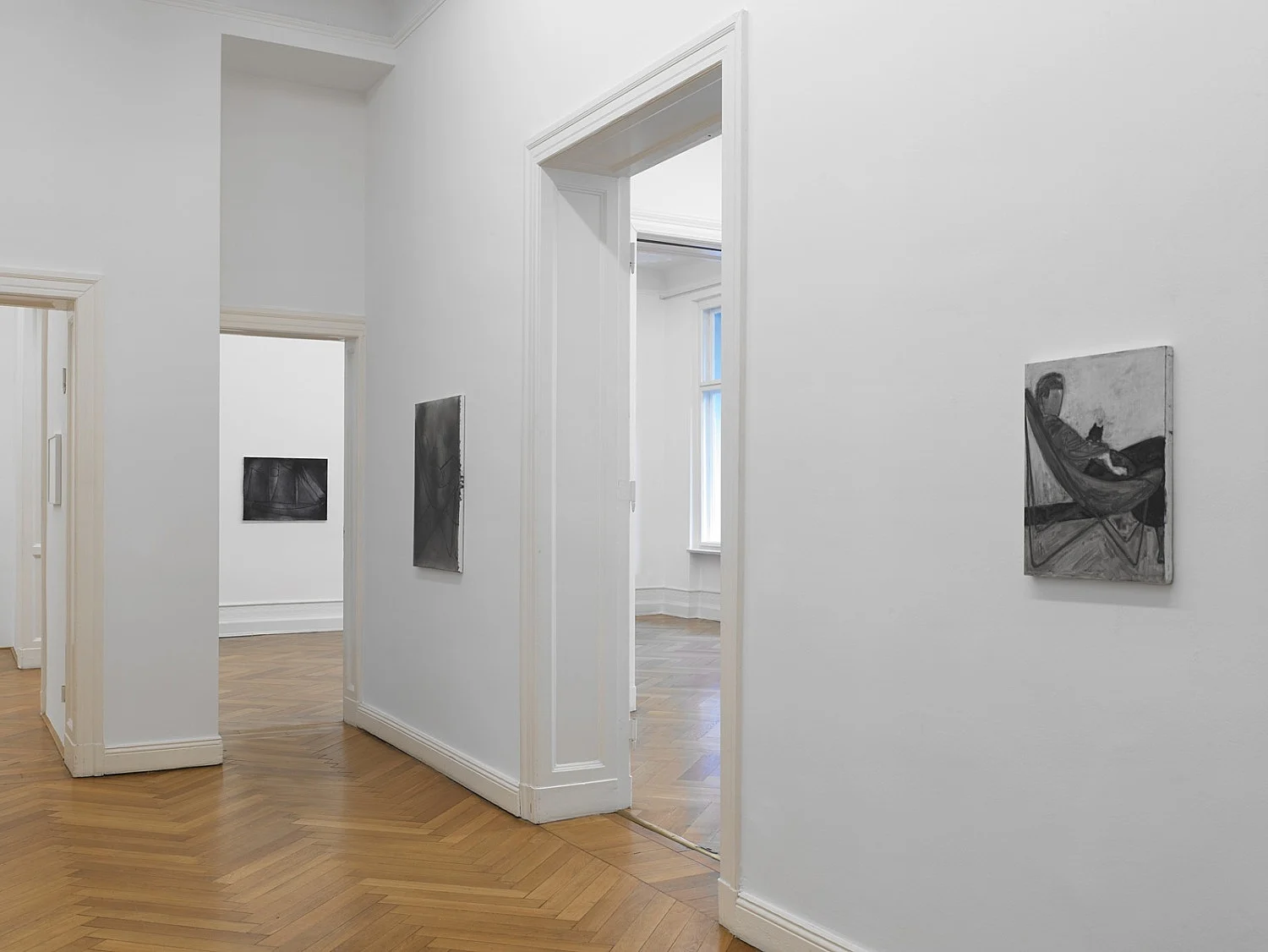

“North & South”
25 August 2012
opening reception on Friday,
29 June, 7-9 pm
The gallery is closed from
14 August until 18 August
Silke Otto-Knapp
“North & South”
29. Juni - 25. August 2012
Eröffnung am Freitag, dem 29. Juni, 19-21 Uhr
Silke Otto Knapp zeigt in ihrer dritten Einzelausstellung in der Galerie Buchholz neue Bilder und Arbeiten auf Papier. Der Ausstellungstitel “North & South” ist von der Dichterin Elizabeth Bishop (1911-1979), die so 1946 ihre erste veröffentlichte Gedichtsammlung betitelte. Für ihre neuen Arbeiten verwendet Silke Otto-Knapp dunkle Grautöne und kombiniert so u.a. Darstellungen nordamerikanischer Meerlandschaften, Seestücke, Segelschiffe und ein Schiffsmodell aus dem Lane House Museum in Tilting, Neufundland, mit Winterlandschaften, Darstellungen der Bühne des Mountain Home Studios der Tänzerin und Choreographin Anna Halprin (*1920), sowie Bühnenbildentwürfe von Natalija Gontscharowas für das Ballett “Le Coq d’or” von 1914 und Pablo Picasso für das Ballett “Parade” von 1917.
“Topography displays no favorites; North’s as near as West.
More delicate than the historians’ are the map-makers’ colors.”
(Elizabeth Bishop “The Map”, aus “North and South”, Boston 1946)
Silke Otto-Knapp
“North & South”
29 June - 25 August, 2012
opening reception on Friday, 29 June, 7-9 pm
In her third solo exhibition at Galerie Buchholz Silke Otto-Knapp presents new paintings and works on paper. The title of the exhibition “North & South” is taken from the poet Elizabeth Bishop (1911-1979) who titled her first published collection of poems in 1946 like this. For her new works Silke Otto-Knapp uses dark grey tones and combines, amongst others, images of North American coastal landscapes with seascapes, sailing ships and a model ship from the Lane House Museum in Tilting, Newfoundland, with winter landscapes, pictures of the dancer and choreographer Anna Halprin’s (*1920) Mountain Home Studios stage, and stage designs by Natalia Goncharova for the ballet “Le Coq d’or (The Golden Cockerel)” from 1914 and Pablo Picasso for the ballet “Parade“ from 1917.
“Topography displays no favorites; North’s as near as West.
More delicate than the historians’ are the map-makers’ colors.”
(Elizabeth Bishop “The Map”, from “North and South”, Boston 1946)























































